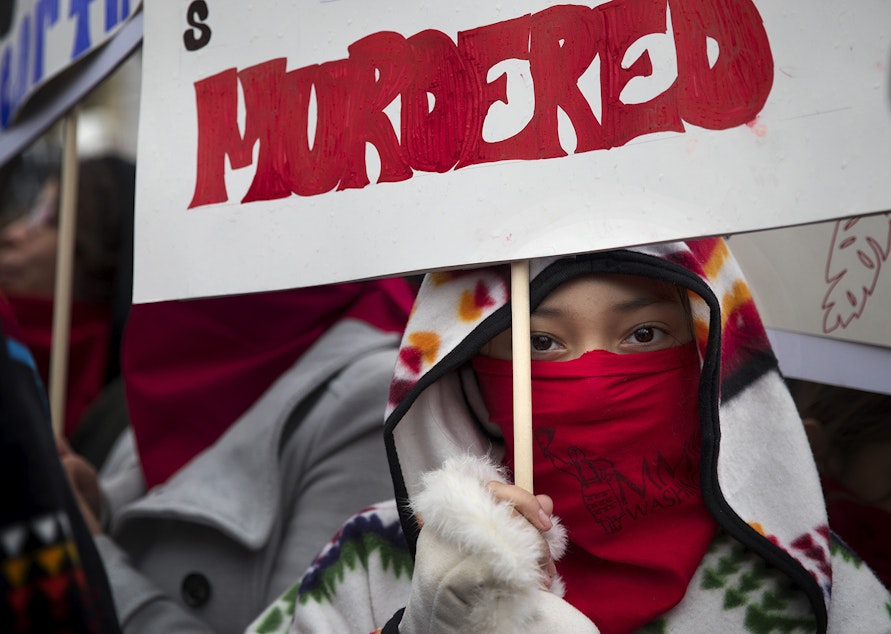Tears flow as Seattle Council commits to supporting Native Americans

“Reclaiming the inherent responsibility of the City to protect its most vulnerable populations.”
Those are the first words in a resolution passed by the Seattle City Council on Monday that aims to support Native American communities — especially the crisis involving missing or murdered indigenous women and girls.
Councilmember Debora Juarez, a member of the Blackfeet Nation, listed what’s in the measure:
“Number one, we decolonize the data by improving data collection and reporting methods. We will be working with Chief Best, Mayor Durkan, City Attorney Pete Holmes, and King County Prosecutor Dan Satterberg.”
Juarez said the work is urgent.
“Seattle ranks No. 1 as having the highest rate of missing, murdered indigenous women and girls across this country,” she said.
Sponsored
The City Council is urging the city to create a new way to track these cases. There have been two recent efforts to provide better numbers.
A report released last fall by Seattle’s Urban Indian Health Institute showed that more than 500 Native American women had disappeared or been murdered in U.S. cities, many since the year 2000.
Seattle had 74 cases, the most of any city. And Washington state had the second-highest number of any state.
This year, the Washington State Patrol released a report that found smaller numbers. But Native Americans and their advocates criticized the effort, saying the numbers were almost certainly an undercount, the result of persistent barriers to gathering data.
Sponsored
The patrol report itself cited a lack of coordination and data sharing among law enforcement agencies, including tribal agencies; cultural misunderstanding and distrust of law enforcement; questionable integrity of data collection (for instance, racial misclassification of victims).
The City Council resolution addresses those and other issues, such as causes of homelessness and poverty, and support for HIV and AIDS programs at organizations like the Seattle Indian Health Board.
“The city can provide direct health care and behavioral services for American Indian, Alaska Native patients impacted by violence and sexual assault,” Juarez said.
Juarez’s emotional presentation Monday, as well as public comments beforehand by Native Americans, brought tears in the meeting room, including from Councilmembers Bruce Harrell and Sally Bagshaw.
“To the people who are here today who have been invisible, you are very much visible,” Bagshaw said. “Your stories have just broken through.”
Sponsored
But specific legislation and accountability measures will be needed for the resolution to have an impact.




